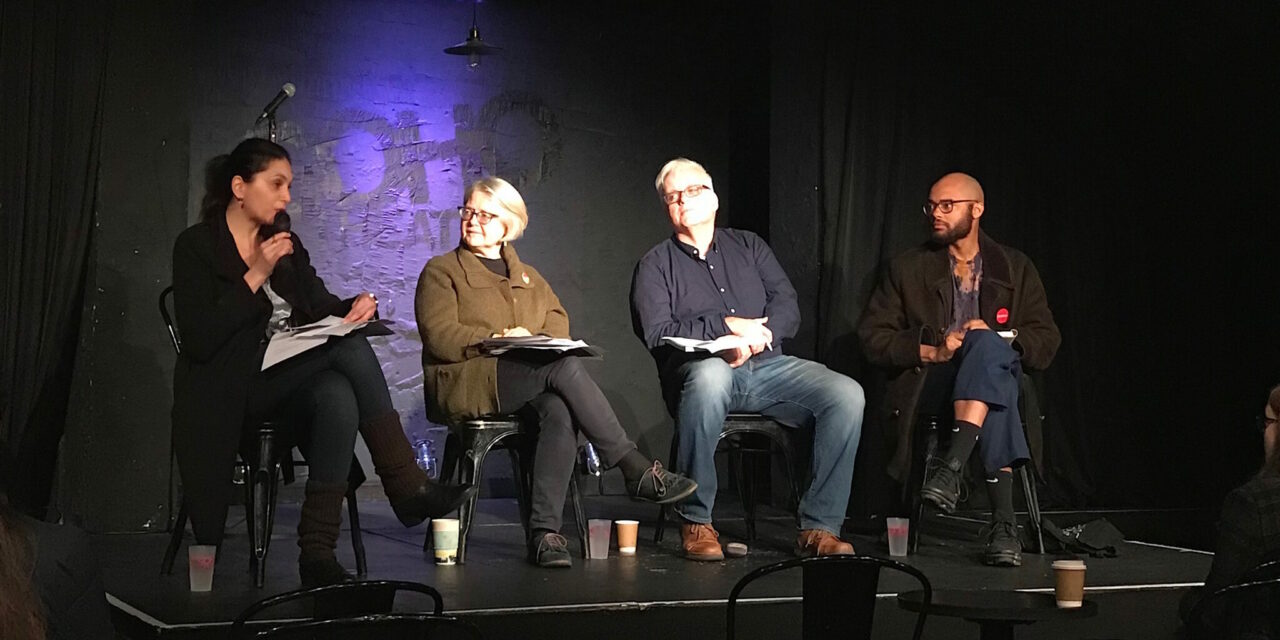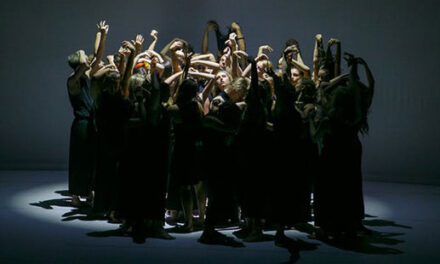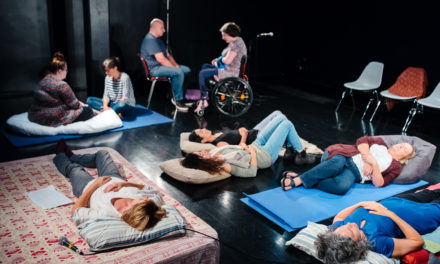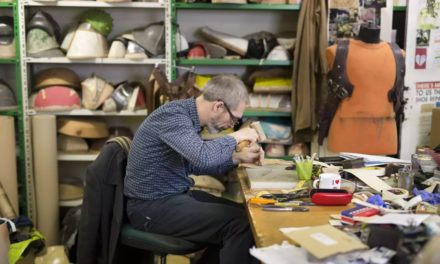Founded in 2001, the Dramaturgs’ Network is the only organization in the United Kingdom solely dedicated to supporting dramaturgs and promoting the practice and theory of dramaturgy. Among their chief activities is the administration of the Kenneth Tynan Award, which was established in 2011 to mark the Network’s tenth anniversary. The biannual award exists to recognize and honor dramaturgs who have made an outstanding contribution to dramaturgy in the UK.
Such contributions may include discovering new talent or noteworthy writing, supporting a director or a company on a production, matching the right play with the right translator, curating a notable festival, or, more broadly, helping raise the standard of theatre and/or dance in the UK. The previous winners of the award include Hanna Slättne, Ruth Little, and Lloyd Trott. The candidates for the award are nominated by the public, with the winner chosen by the Kenneth Tynan Award Panel.
Kenneth Tynan (1927 – 1980), after whom the award has been named, is widely accepted as the first dramaturg in the UK. Tynan was a leading theatre critic of his time, but left The Observer to work as Literary Manager at Laurence Olivier’s newly established National Theatre, where he held this post from 1963 to 1974. With his exemplary pen and formidable knowledge of world theatre, Tynan proved integral to the success of this first British theatre to be funded publically. He thus introduced the practice of dramaturgy to the UK and left an indelible mark on British theatrical culture. In evoking Tynan’s name, the award aspires to identify and showcase achievements in dramaturgy that build on his foundational legacy in the field.
Headed by Duška Radosavljević, the 2019 Award Panel included David Harris, Miranda Laurence, Richard Shannon, Sarah Sigal, and Katalin Trencsényi. This year’s award, which entailed a plaque and a check, was sponsored by Oberon Books and supported by the Soho Theatre, where the award ceremony took place on November 17 as part of a daylong program of events. The participants of the program included dramaturgs, theatre-makers, and researchers, who were there not only to find out and celebrate the award’s winner—later revealed to be Suzanne Bell of the Royal Exchange Theatre—but also to attend two panels on dramaturgy, featuring a diverse group of practitioners.
The first panel of the day, titled “International Dramaturgy,” considered models of dramaturgy in various cultural and geographical contexts, and attempted to situate them in relation to the work done in the UK. Chaired by Aneta Mancewicz (Lecturer in Drama & Theatre at Royal Holloway, University of London), the panel brought together three dramaturgs with distinctly international experiences: Fiona Graham (Goldsmiths College), Jonathan Meth (The Fence), and Caroline Snape (Theatre by the Lake). For over thirty years, Graham’s wide-ranging dramaturgical practice has nourished close ties with New Zealand. Meth is the curator and founder of The Fence, which is an international network for playwrights and cultural operators. And Snape is a UK-based freelance dramaturg with years of experience in the US.
Graham’s opening remarks centered on the idea of “deep listening,” which, as the basis of ethical international practice, allows a dramaturg to understand how a foreign country works culturally. She characterized this methodology of listening as a key component of helping the work become more nuanced and layered, which is often a deliberately destabilizing process. Snape followed upon this by mapping the dramaturg’s common responsibilities and tasks in North America, which revolve around providing context at every stage of the creative process. Meth then talked about the complexities of working as a British dramaturg in postcolonial settings and elaborated on the measures he has taken in his own practice to grapple with these challenges.
The panelists’ ensuing conversation touched on essential characteristics of healthy dramaturgical practices, especially in transcultural collaborations. They discussed dramaturgy as a productive, generative force that stems from inevitable misunderstanding between the dramaturg and other artists. Because dramaturgy sets great store by asking the right questions at the right time, they deemed it essential to acknowledge that the questions asked by a dramaturg are influenced by where that dramaturg comes from. In this framework, they also considered dramaturgy’s intermedial nature, its applicability to art forms other than text-based theatre, and its relation to the design process.
The second panel, on dramaturgy and activism, was chaired by Nesreen Hussein (Lecturer in Contemporary Theatre Theory and Practice, Middlesex University), who anchored this expansive theme on instances of socially and politically engaged storytelling, which can serve as acts of both documentation and resistance. Jonathan Meth from the previous panel was joined by Sue Mayo (Goldsmiths College) and Anthony Simpson-Pike (Gate Theatre).
Mayo—a theatre-maker, facilitator, and researcher—kicked off the discussion with an overview of her practice in collaborative community performance and positioned activist work on the basis of “unagreed societies,” where multiple, unclear narratives compete for ascendancy. Because activism can instinctively lead one to defend a single, clear narrative, and because dramaturgical editing can be an act of erasure, she encouraged dramaturgs to recognize the limits of their intervention in the creative process. She noted that dramaturgs should always ask themselves: Who are we to guide this process? What will be the political valence of our role?
Simpson-Pike, who is a director, writer, and dramaturg, complemented Mayo’s points by cautioning theatre-makers against “the danger of a single story” (quoting from Chimamanda Ngozi Adichie) and, by extension, the danger of a single dramaturgy. Evoking Sarah Ruhl’s famous comparison of the traditional dramatic structure to the male orgasm, Simpson-Pike engaged with the questions of who gets to make rules about plays and for whom they are intended. When we refer to a “radical” experience in the theatre, for example, for whom is it radical, and why? On the basis of these queries, Simpson-Pike argued for the importance of embracing subjectivity in theatre-making and the inherently political nature of dramaturgy. “Every story represents,” he said, “and is therefore political.”
Meth’s contributions to this panel were focused on his involvement with Crossing the Line, a network of six European theatre companies working with learning-disabled artists. In detailing how his dramaturgical practice has had to adapt to the particular challenges and aspirations of disabled theatre-makers, Meth underlined the multiplicities of both what theatre can be and which social issues it can tackle.
This concern with multiplicity was a defining feature of the rest of the discussion. There was agreement among the panelists that activism should embrace and attend to the multiplicity of stories, voices, and issues, while acknowledging the ways in which it can also depend on a sureness about one’s cause, about one’s anger at injustice. When asked how to define activism, Mayo said that activist performance generates repercussions and causes conversation. “All art is political,” Simpson-Pike added, “Activist work recognizes that there will be a political outcome and makes a decision about what that outcome will be.”
Following the conclusion of the panel, Duška Radosavljević introduced the two shortlisted nominees of the Kenneth Tynan Award: Suzanne Bell and Nicola McCartney. Bell is Dramaturg at the Royal Exchange Theatre where she oversees the Bruntwood Prize for Playwriting. She has worked with playwrights including Simon Stephens, April de Angelis, and Rory Mullarkey, and led writers’ workshops at various universities and theatres including Liverpool Everyman & Playhouse, Royal Court, Soho Theatre, and Birmingham Rep. She was a Trustee for Clean Break Theatre Company and has also worked with the British Theatre Consortium, Writers’ Guild of Great Britain, and SOLT in negotiating unionized writer’s agreements.
McCartney is a social theatre practitioner who has worked with many groups, including people within the criminal justice system in the UK and the US. She is currently a Reader in Writing for Performance at University of Edinburgh. Previously, she was Artistic Director of Lookout Theatre Company in Glasgow and has twice been an Associate Playwright of Playwrights Studio Scotland. In 2018, she received a WGGB Olwen Wymark Award for encouraging theatre in the UK.
Radosavljević welcomed Sudha Bhuchar to the stage to present the award. Playwright, actor, and co-founder of Tamasha Theatre Company, Bhuchar delivered a speech that elaborated on how dramaturgs have been a lifeline to her across different areas of her practice. She shared lively anecdotes about both working with dramaturgs in her own playwriting, especially while writing her first plays, and supporting younger talent as a dramaturg herself. This account of her personal, multilayered journey through dramaturgy served as a robust example of many of the points raised earlier in the panels about the high-impact potential of the discipline.
After Bhuchar announced Suzanne Bell as the recipient of this year’s award, Bell went on to deliver a heartfelt paper about her own approach to dramaturgy, prefacing her remarks with this quotation by August Wilson: “The quality of life depends on the questions you ask.” Throughout her remarks, Bell gave us a sense of the questions she has asked of herself and others’ work in her dramaturgical practice. She defined theatre as “a gesture of enquiry” and urged dramaturgs to “question everything,” as well as recognize the unanswerable questions. “Dramaturgy is about being brave enough to be vulnerable,” she added, and concluded with these resonant imperatives: “Be curious, be rigorous, and keep asking difficult questions.”
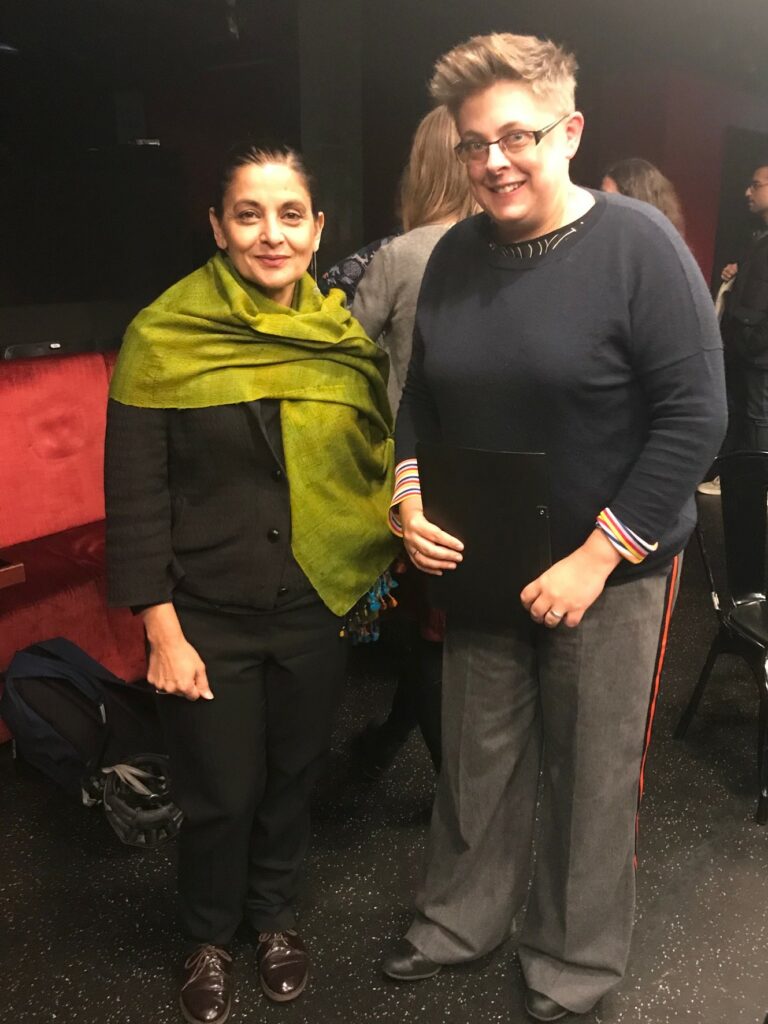
Sudha Bhuchar and Suzanne Bell at the Kenneth Tynan Award Ceremony.
To round off the day, members of the Dramaturgs’ Network offered a half-hour session of dramaturgical speed dating, whereby writers and other artists individually chatted with dramaturgs about their projects. The conversations then continued at the Soho Theatre Bar, where the attendees of the program found the chance to network and reflect on the day.
Dramaturgy in the UK can often be a marginalized and isolated practice, but the Kenneth Tynan Award Ceremony was a refreshing reminder of the robust, supportive community of dramaturgs based in the UK. The events of the day allowed dramaturgs and other theatre-makers to recognize, celebrate, and learn from one another’s work. As it would be rightly expected from a gathering of dramaturgs, the questions posed and the answers offered were consistently thought-provoking. The cerebral intensities implied by the award’s motto—“Rouse tempers, goad, lacerate and raise whirlwinds!”, attributed to Kenneth Tynan—were certainly evident in the day’s discussions. It should bring one great hope and excitement that the future of dramaturgy in the UK and beyond rests with these astute practitioners.
This post was written by the author in their personal capacity.The opinions expressed in this article are the author’s own and do not reflect the view of The Theatre Times, their staff or collaborators.
This post was written by Mert Dilek.
The views expressed here belong to the author and do not necessarily reflect our views and opinions.

